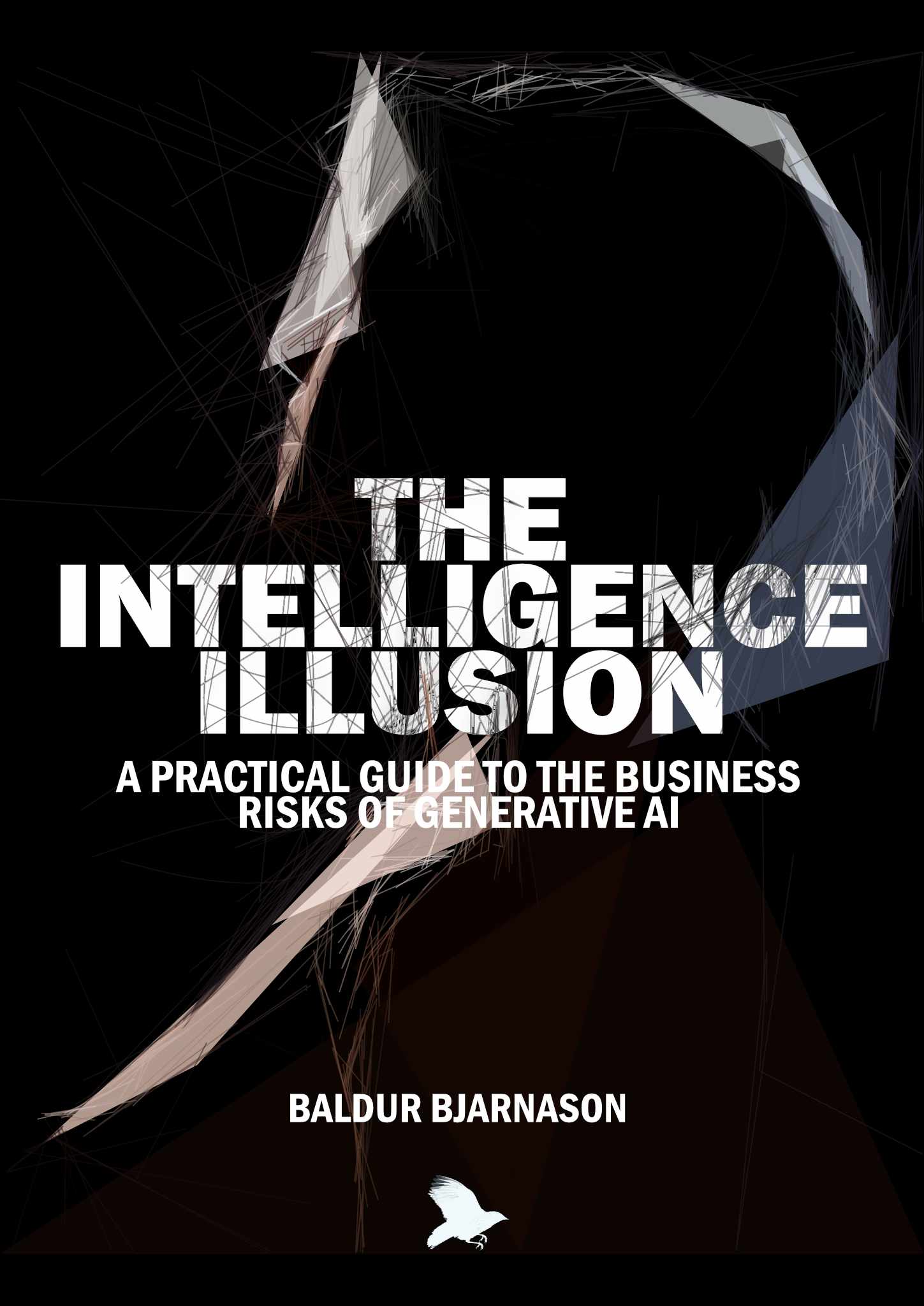Abid, Abubakar, Maheen Farooqi, and James Zou.
“Persistent
Anti-Muslim Bias in
Large Language
Models.” arXiv, January 2021.
https://doi.org/10.48550/arXiv.2101.05783.
Bartoletti, Ivana.
“ChatGPT Gender
Bias.” Twitter, March 2023.
https://twitter.com/IvanaBartoletti/status/1637401609079488512.
Bastian, Matthias.
“Stable Diffusion V2 Removes
NSFW Images and Causes Protests.” THE
DECODER, November 2022.
https://the-decoder.com/stable-diffusion-v2-removes-nude-images-and-causes-protests/.
Bender, Emily M., and Batya Friedman.
“Data
Statements for Natural
Language Processing: Toward
Mitigating System Bias and
Enabling Better
Science.” Transactions of the Association
for Computational Linguistics 6 (2018): 587–604.
https://doi.org/10.1162/tacl_a_00041.
Birhane, Abeba, Vinay Uday Prabhu, and Emmanuel Kahembwe.
“Multimodal Datasets: Misogyny, Pornography, and Malignant
Stereotypes.” arXiv, October 2021.
https://doi.org/10.48550/arXiv.2110.01963.
Buolamwini, Joy, and Timnit Gebru.
“Gender
Shades: Intersectional
Accuracy Disparities in
Commercial Gender
Classification.” In
Proceedings of the 1st
Conference on Fairness,
Accountability and Transparency,
77–91. PMLR, 2018.
https://proceedings.mlr.press/v81/buolamwini18a.html.
Burgess, Matt.
“The Hacking of
ChatGPT Is Just
Getting Started.” Wired.
Accessed April 14, 2023.
https://www.wired.com/story/chatgpt-jailbreak-generative-ai-hacking/.
Chmielinski, Kasia S., Sarah Newman, Matt Taylor, Josh Joseph,
Kemi Thomas, Jessica Yurkofsky, and Yue Chelsea Qiu.
“The
Dataset Nutrition Label
(2nd Gen): Leveraging
Context to Mitigate Harms
in Artificial Intelligence.”
arXiv, March 2022.
https://doi.org/10.48550/arXiv.2201.03954.
Crypto, CRYPTOINSIGHT PRO.
“Stable Diffusion
2.0 Has "Forgotten" How to Generate NSFW
Content.” Substack newsletter.
CRYPTOINSIGHT.PRO
Crypto NFT DeFi, November 2022.
https://cryptoinsightpro.substack.com/p/technologies2.
Dastin, Jeffrey.
“Amazon Scraps Secret AI
Recruiting Tool That Showed Bias Against Women.”
Reuters, October 2018.
https://www.reuters.com/article/us-amazon-com-jobs-automation-insight-idUSKCN1MK08G.
Foong, Ng Wai.
“Stable Diffusion 2:
The Good, The
Bad and The Ugly.”
Medium, December 2022.
https://towardsdatascience.com/stable-diffusion-2-the-good-the-bad-and-the-ugly-bd44bc7a1333.
Gebru, Timnit, Jamie Morgenstern, Briana Vecchione, Jennifer
Wortman Vaughan, Hanna Wallach, Hal Daumé III, and Kate Crawford.
“Datasheets for Datasets.” Communications of the
ACM 64, no. 12 (November 2021): 86–92.
https://doi.org/10.1145/3458723.
Greshake, Kai, Sahar Abdelnabi, Shailesh Mishra, Christoph Endres,
Thorsten Holz, and Mario Fritz.
“More Than You’ve Asked for:
A Comprehensive Analysis of
Novel Prompt Injection
Threats to
Application-Integrated
Large Language
Models.” arXiv, February 2023.
https://doi.org/10.48550/arXiv.2302.12173.
Heikkilä, Melissa.
“The Viral AI Avatar App
Lensa Undressed Me—Without My Consent.”
MIT Technology Review, December 2022.
https://www.technologyreview.com/2022/12/12/1064751/the-viral-ai-avatar-app-lensa-undressed-me-without-my-consent/.
Johnson, Khari.
“Chatbots Got
Big—and Their Ethical
Red Flags Got
Bigger.” Wired. Accessed February 21,
2023.
https://www.wired.com/story/chatbots-got-big-and-their-ethical-red-flags-got-bigger/.
Kapoor, Sayash, and Arvind Narayanan.
“Quantifying
ChatGPT’s Gender Bias.” Substack newsletter.
AI Snake Oil, April 2023.
https://aisnakeoil.substack.com/p/quantifying-chatgpts-gender-bias.
Kotek, Hadas.
“#ChatGPT Doubles down on Gender
Stereotypes Even When They Don’t Make Sense in Context.”
Twitter, April 2023.
https://twitter.com/HadasKotek/status/1648453764117041152.
Maluleke, Vongani H., Neerja Thakkar, Tim Brooks, Ethan Weber,
Trevor Darrell, Alexei A. Efros, Angjoo Kanazawa, and Devin
Guillory.
“Studying Bias in GANs
Through the Lens of Race.” arXiv,
September 2022.
https://doi.org/10.48550/arXiv.2209.02836.
Mauro, Gianluca, and Hilke Schellmann.
“‘There Is No Standard’:
Investigation Finds AI Algorithms Objectify Women’s
Bodies.” The Guardian, February 2023.
https://www.theguardian.com/technology/2023/feb/08/biased-ai-algorithms-racy-women-bodies.
McMillan-Major, Angelina, Emily M. Bender, and Batya Friedman.
“Data Statements: From
Technical Concept to
Community Practice.” ACM
Journal on Responsible Computing, May 2023.
https://doi.org/10.1145/3594737.
Meade, Nicholas, Elinor Poole-Dayan, and Siva Reddy.
“An
Empirical Survey of the
Effectiveness of Debiasing
Techniques for Pre-Trained
Language Models.” In
Proceedings of the 60th Annual
Meeting of the Association for
Computational Linguistics
(Volume 1: Long
Papers), 1878–98. Dublin, Ireland: Association
for Computational Linguistics, 2022.
https://doi.org/10.18653/v1/2022.acl-long.132.
Mitchell, Margaret, Simone Wu, Andrew Zaldivar, Parker Barnes,
Lucy Vasserman, Ben Hutchinson, Elena Spitzer, Inioluwa Deborah
Raji, and Timnit Gebru.
“Model Cards for
Model Reporting.” In
Proceedings of the Conference on
Fairness, Accountability, and
Transparency, 220–29.
FAT* ’19. New
York, NY, USA: Association for Computing Machinery, 2019.
https://doi.org/10.1145/3287560.3287596.
“Model Cards.” Accessed May 21, 2023.
https://huggingface.co/blog/model-cards.
Monge, Jim Clyde.
“Stable Diffusion 2.1
Released — NSFW Image
Generation Is Back.”
MLearning.ai, December 2022.
https://medium.com/mlearning-ai/stable-diffusion-2-1-released-nsfw-image-generation-is-back-8bcc5c069d60.
Nkonde, Mutale.
“ChatGPT: New
AI System, Old Bias?” Mashable,
February 2023.
https://mashable.com/article/chatgpt-ai-racism-bias.
Noor, Poppy.
“Can We Trust AI Not to Further
Embed Racial Bias and Prejudice?” BMJ 368
(February 2020): m363.
https://doi.org/10.1136/bmj.m363.
Perault, Matt.
“Section 230 Won’t
Protect ChatGPT.”
Lawfare, February 2023.
https://www.lawfareblog.com/section-230-wont-protect-chatgpt.
Perrigo, Billy.
“Exclusive: The $2
Per Hour Workers
Who Made ChatGPT
Safer.” Time, January 2023.
https://time.com/6247678/openai-chatgpt-kenya-workers/.
Raghavan, Manish, Solon Barocas, Jon Kleinberg, and Karen Levy.
“Mitigating Bias in Algorithmic
Hiring: Evaluating Claims
and Practices.” In
Proceedings of the 2020
Conference on Fairness,
Accountability, and Transparency,
469–81, 2020.
https://doi.org/10.1145/3351095.3372828.
Sloane, Mona, Emanuel Moss, and Rumman Chowdhury.
“A
Silicon Valley Love
Triangle: Hiring
Algorithms, Pseudo-Science,
and the Quest for Auditability.”
arXiv, May 2022.
https://doi.org/10.48550/arXiv.2106.12403.
Stoyanovich, Julia, and Bill Howe.
“Nutritional
Labels for Data and
Models.” A Quarterly Bulletin of the
Computer Society of the IEEE Technical Committee on Data
Engineering 42, no. 3 (September 2019).
https://par.nsf.gov/biblio/10176629-nutritional-labels-data-models.
Tatman, Rachael.
“Gender and Dialect
Bias in YouTube’s Automatic
Captions.” In
Proceedings of the
First ACL Workshop on
Ethics in Natural Language
Processing, 53–59. Valencia, Spain: Association
for Computational Linguistics, 2017.
https://doi.org/10.18653/v1/W17-1606.
“The Radicalization Risks of
GPT-3 and Neural Language
Models Middlebury
Institute of International
Studies at Monterey,” September
2020.
https://www.middlebury.edu/institute/academics/centers-initiatives/ctec/ctec-publications/radicalization-risks-gpt-3-and-neural-language.
Whittaker, Meredith, Meryl Alper, Cynthia L. Bennett, Sara
Hendren, Liz Kaziunas, Mara Mills, Meredith Ringel Morris, et al.
“Disability, Bias, and AI,”
November 2019.
https://www.microsoft.com/en-us/research/publication/disability-bias-and-ai/.
Willison, Simon.
“Prompt Injection Attacks Against
GPT-3.” Accessed February 21, 2023.
http://simonwillison.net/2022/Sep/12/prompt-injection/.
———.
“Prompt Injection: What’s the Worst That Can
Happen?” April 2023.
https://simonwillison.net/2023/Apr/14/worst-that-can-happen/.
Xiang, Chloe, and Emanuel Maiberg.
“ISIS
Executions and
Non-Consensual Porn
Are Powering AI
Art.” Vice, September 2022.
https://www.vice.com/en/article/93ad75/isis-executions-and-non-consensual-porn-are-powering-ai-art.
Yeo, Catherine.
“How Biased Is
GPT-3?” Fair Bytes, June 2020.
https://www.fairbytes.org/post/how-biased-is-gpt-3.
